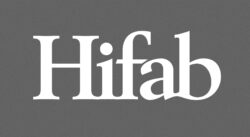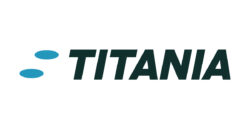2024-11-14
CFO Ove B. Haupberg
"We have a proven track record of financial stability, consistently delivering solid results. Our EBITA target remains around 10%, and we have a dividend policy that aims to pay out at least 50% of net income annually, which reflects our commitment in returning value to shareholders."
For those unfamiliar with Multiconsult, can you provide an overview of your company, what you do, and the markets you operate in?
Multiconsult is a Norway-based engineering and architecture consultancy with a strong presence across the Nordics and globally. While we’re headquartered in Norway, we also operate extensively in Sweden, Denmark, Poland, and the UK, and we’re engaged in projects in over 45 countries worldwide. Our team consists of around 3,800 professionals, and we handle around 15,000 projects each year for a diverse client base of roughly 5,500.
Our business is organized into four main segments. These include two divisions focused on Norwegian engineering—covering the regions of Norge and Oslo—and an architectural arm under the LINK Arkitekur brand, which operates in Norway, Sweden, and Denmark, along with A-lab in Norway. Additionally, we have engineering consultancies in Sweden (Iterio) and Poland (Multiconsult Polska).
Our work covers several key sectors or business areas that includes: Building & Property, Mobility & Transportation, Energy & Industry, and Water & Environment. We have a balanced mix of public and private clients, each making up about half of our portfolio. Over the past five years, we’ve consistently achieved a profitability rate (red. EBITA) of approximately 9-11%, which we’re proud of, as it reflects the strong relationships we’ve built and the value we deliver to our clients.
Multiconsult has a broad range of services across various sectors. Can you tell us more about how you support your clients with your engineering and consulting services, and what you see as your main strengths compared to competitors?
We’re fortunate to have a strong foundation across many sectors, and I’d say there are five areas where we stand out. First, we’re a leader in healthcare infrastructure in Scandinavia. We’ve completed numerous hospitals and elderly care facilities, which is crucial work given the growing demands in healthcare across the Nordics. For instance, we’re heavily involved in the development of the new Rikshospitalet in Oslo, one of Norway’s largest ongoing projects.
Our second strength is in renewable energy, a field we’ve been involved in since our founding in 1908. Originally, we were focused on hydropower in Norway, but we’ve since expanded into solar and wind projects across many regions, including numerous developing countries. This aligns us with the global green transition, which is very much a priority for us.
We’re also heavily invested in urban development. This covers the entire lifecycle, from initial planning and design to construction, community engagement, and eventually renovation. It’s about creating spaces that connect people and buildings and ensuring that cities grow sustainably.
In addition, we’re uniquely strong in geotechnical engineering. We have our own drilling rigs and boats (red. drilling vessels) that allow us to conduct thorough land and marine surveys. This includes environmental assessments, which are increasingly important as clients seek sustainable solutions.
Lastly, we excel in infrastructure and transport solutions. We’re involved in road and rail transport, power supply networks, and water solutions, ensuring that cities have the necessary infrastructure to support growth and resilience. Across these sectors, we’ve built a solid reputation, and we continue to innovate in each area.
How do you view the Swedish market compared to the Norwegian market? What opportunities and challenges do you see in Sweden versus your home market?
The Swedish market is one we follow closely, especially with our subsidiaries LINK Arkitektur in Sweden and Iterio firmly embedded there. Sweden has had a tougher time recently in terms of construction and infrastructure, especially in Stockholm. The challenges in Sweden have been greater than what we’ve seen in Norway, but we’re optimistic. There are already signs of recovery, though we remain cautiously optimistic.
One of the unique opportunities in Sweden lies in its strong industrial base, which gives us room to bring our expertise in sustainable industrial solutions. Swedish industry has historically been more traditional than in Norway, which is heavily oil and gas-focused. That said, there’s a huge demand in Sweden for renewable energy solutions, like wind and solar, which is one of our specialties. We see Sweden as a significant growth market, especially in energy, industry, and infrastructure, where we have plenty of room to expand.
You’ve recently expanded your offerings and projects. Can you tell us about a recently launched initiative or project and the advantages it brings to your clients?
One of the exciting tools we’ve recently introduced is called Augmented Architects, which our architecture firms LINK uses. This is an augmented reality tool that allows both us and our clients to visualize projects in a much more immersive way. Clients can see how buildings will look in terms of sunlight, shading, and how the structure will fit into its surroundings, which helps everyone involved make more informed decisions early in the planning phase.
We also recently announced a framework agreement with the defense sector, focusing on infrastructure and security solutions. Security is a growing area, and this partnership allows us to support the sector with our expertise, particularly with sustainable, robust solutions.
Another key area for us is water management. The EU’s water directives require updated and safer water and wastewater solutions, and we’re proud to be leading major projects in this area. Water safety and sustainability are critical, especially with the increasing focus on environmental standards in Europe. So, these initiatives are just a few examples of how we’re bringing new value to our clients.
Where do you see Multiconsult in three years in terms of growth and development?
We recently outlined our strategy during our Capital Markets Day – our primary goal is to maintain profitable growth across all our business areas. We’re focused on taking on more complex, large-scale projects where we can leverage our combined engineering and architecture expertise.
Another priority is green transition. We want to be a preferred partner for clients navigating energy transitions, especially in renewable sectors like hydro, solar, and wind, and in sustainable transport solutions. We’re also committed to supporting the growth of cities through sustainable urban development, which aligns with our expertise in environmental assessments and biodiversity.
We’re also planning geographical expansion beyond Norway, especially in the Nordics and Poland, through both organic growth and by mergers and acquisitions. This growth strategy spans the next decade, but the first three years will really set the foundation. We’re optimistic about the future and believe that our experience and resources will help us make a lasting impact in these areas.
Can you give three reasons why Multiconsult is an attractive investment for potential shareholders?
First, we have a proven track record of financial stability, consistently delivering solid results. Our EBITA target remains around 10%, and we have a dividend policy that aims to pay out at least 50% of net income annually, which reflects our commitment in returning value to shareholders.
Second, our diversified and resilient business model has shown that we can navigate challenging times effectively. We’re not just limited to one sector or region, and that diversity gives us a strong foundation, especially as we face changes in the global market.
Finally, our growth strategy in the Nordics and Poland is a strong pillar for future expansion. We have a robust financial position and considerable borrowing capacity, so we’re well-equipped to pursue both organic growth and strategic acquisitions. Together, these elements position us well for future growth and long-term value creation for our shareholders.
And I’d like to add that Multiconsult’s expertise is truly a valuable asset in the green transition we’re all facing. It’s something that’s important to our clients, our society, and to us internally. This commitment not only drives our work but also adds value for our shareholders, as we continue to contribute meaningfully to a more sustainable future.




